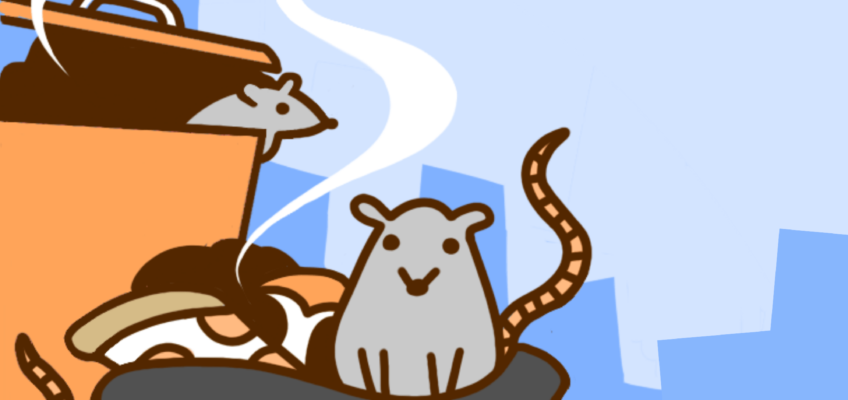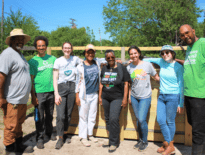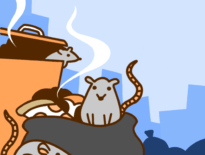For Immediate Release: August 29, 2022
Media Contact: Reggie Rucker | reggie@ilsr.org | 202.827.1210 x255
Nobody Likes a Rat – This New Guide Helps Home and Community Composters Prevent Them
WASHINGTON, DC – Contrary to popular belief, composting in cities does not cause rodent problems. In fact, composting food scraps and other organic materials, instead of dumping them in the trash, has the power to mitigate rodent pressures in urban neighborhoods.
A newly released guide from the Institute for Local Self-Reliance (ILSR) aims to support composters at community gardens, schools, urban farms, and other community venues in successfully managing their composting process to prevent attracting rodents. Funded in part by the Natural Resources Defense Council’s Food Matters program, “Oh, Rats! How to Avoid Rodents at Community Composting Sites” provides an easy-to-follow and visually compelling guide to composting with peace of mind.
“Decentralized community composting offers so many benefits, from curbing climate change to bolstering local food systems,” says Sophia Hosain, who leads ILSR’s Composting for Community work in Baltimore and oversaw the creation of the “Oh, Rats!” guide. “However, composting momentum is often stifled by the myth that processing food scraps and other organic materials locally will attract rodents. In ‘Oh, Rats!’ we work to illuminate the connection between proper compost management and rodent mitigation to enable composting at any scale, in any place.”
“The key to keeping rodents away is denying them opportunities to burrow, breed, and feed by composting wasted food instead of throwing it away,” says Clarissa Libertelli, ILSR’s Community Composter Coalition Coordinator who led the design of the guide. “Diligent management of the composting process and site maintenance will deter rodent activity before it begins.”
What does diligent management entail? Maintaining an odor-free site, leaving no food bits exposed on the surface of your compost pile, and keeping proteins (including, yes, dog poop) away from the site are just a few of the roughly three dozen recommendations and rat facts contained in the guide to help the home and community composter properly process organic materials.
With a deeper understanding of rodent behavior, composters can safeguard their sites against rodents by denying them access to food, habitat, and security.
View and download the guide at ILSR.org. The use of available graphics is encouraged.
About the Institute for Local Self Reliance
The Institute for Local Self-Reliance has a vision of thriving, equitable communities. We are a national research and advocacy organization that partners with allies across the country to build an American economy driven by local priorities and accountable to people and the planet. The Composting for Community initiative is focused on creating local jobs, enhancing local soils, protecting the climate, and reducing waste.
###





